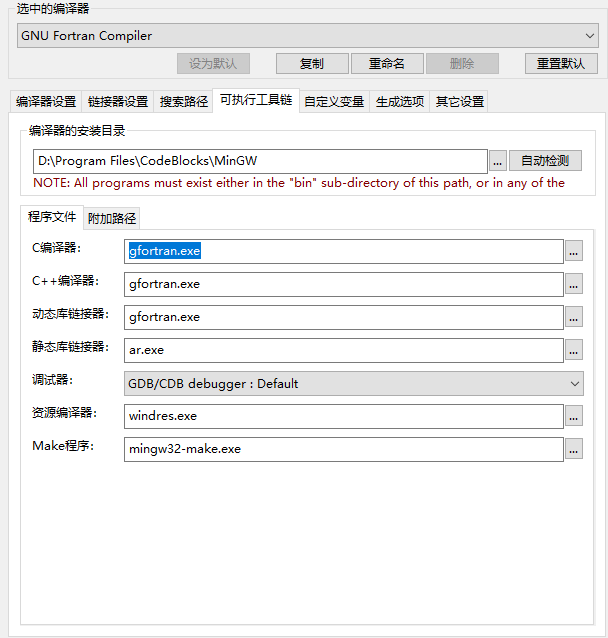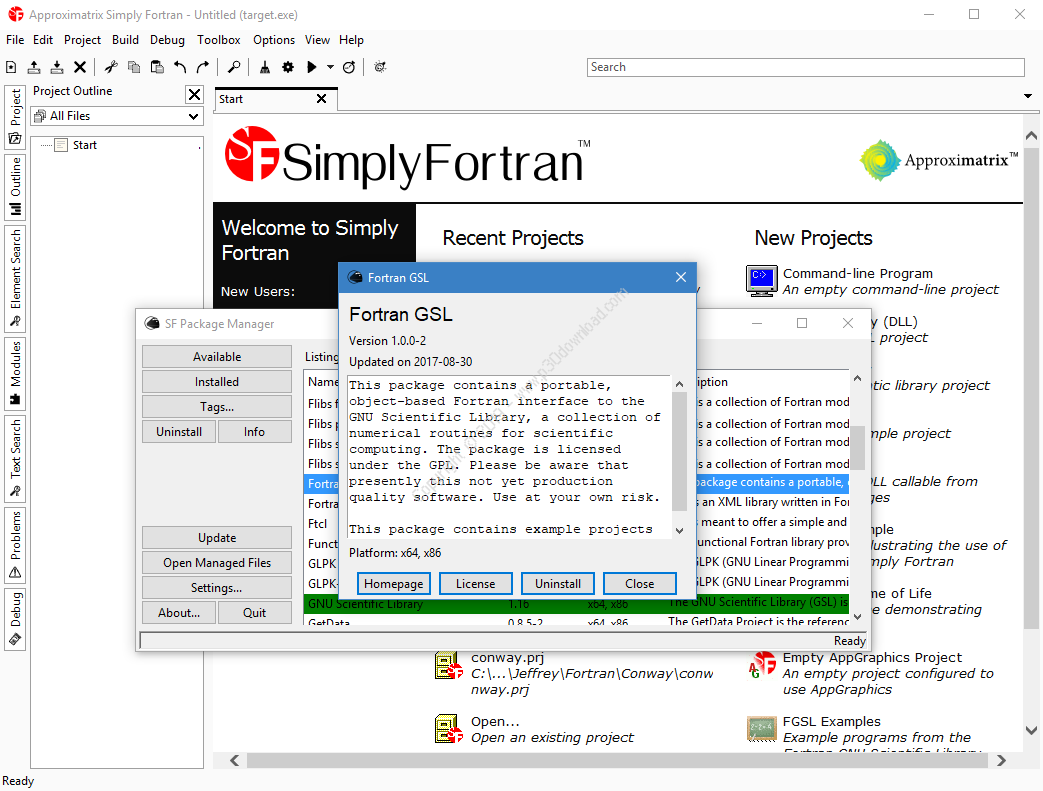

- Simply fortran vs code blocks manual#
- Simply fortran vs code blocks free#
- Simply fortran vs code blocks windows#
The documentation is written in LaTeX and can be retrieved from using the address. More formats and languages may become available. The documentation is provided in English and French languages, in PDF, CHM and HTML formats.
Simply fortran vs code blocks windows#
Current version files: For Windows For Linux 64bit CodeBlocksFortranv1.8Linu圆4.tar. Fortran is well-supported by Visual Studio Code using the Modern Fortran extension, wrapping Gfortran as a linting tool.
Simply fortran vs code blocks free#
If you are going to use Code::Blocks only for C/C++ development, you should visit Code::Blocks home. Fortran development in Visual Studio Code 1 December, 2020 Visual Studio Code is a free open source code editor with numerous extensions supporting most code languages, including for proprietary languages like Matlab. for the French version were provided by gd_on. Here you can find precompiled versions and source code of Code::Blocks oriented towards Fortran developers. The initial documentation had started as an internal project of HighTec EDV-Systeme GmbH who is now making it yet another contribution to the community. This is a community-driven project and contributions/criticism/suggestions are welcomed.
Simply fortran vs code blocks manual#
The interface issue is orthogonal to the function vs subroutine issue.There’s an on-going effort to write a user manual for Code::Blocks. Work fine without any interface block or declaration. The development environment is built for Fortran productivity first and foremost, with support for legacy code, derived type autocomplete, and module dependency management Compatibility Simply Fortran runs perfectly on Windows XP through 11, macOS 10. It is mostly useful if you need to call C or FORTRAN 77 code from someone else, for which you couldn't use modules.Īnd change the line y = func(x) to call func(x,y) then the code will But it will not prevent linking to wrong functions at link time: there is no guarantee that the interface is right. This would force you to follow that declaration in the program. In your case, you could add one in the program file. The interface block is a kind of "in between". When you compile as a "simple" object file, the compiler will simply call whatever function is named func without verification, as long as such a function is given in an object file. You also do not need to declare real :: func as the declarations are taken from the module. When you use modules, the compiler will check the type of the arguments of the functions. Then write use func_m in the main program, before implicit none: gfortran -c func_m.f90, gfortran -c test.f90 and gfortran -o test test.o func_m.o. Since Fortran 90, the recommended way to define reusable functions and subroutines is to use modules. Why do I not need to include an interface block in my program file? As you can see in other questions and answers, there are usually better ways to provide an explicit interface than using an interface block. There are times when an explicit interface is required and in most (nearly all) cases an explicit interface is better. Loosely, then, you don't need an interface block in these cases because the implicit interfaces are good enough. Those three things again match the subroutine's definition, so things are fine. Further, how you reference the function matches precisely the properties of the function itself.Įqually, in the case of the subroutine, a call func(x,y) tells the main program exactly three things, again with the implicit interface: The reference to the function is compatible with that knowledge. In this way, the main program knows exactly three things about func:

This function has an interface in the main program as a result, so it is legitimate to reference that function with y = func(x).

The declaration real :: func in the main program here declares func to be a function with (default) real result. My question is, why do I not need to include an interface block in my program file? Is it simply a matter of good practice, or does defining func as a real variable serve as shorthand? I am on Windows, having installed gfortran through minGW.Īs an aside/related question, if I instead use a subroutine: subroutine func(x,y)Īnd change the line y = func(x) to call func(x,y) then the code will work fine without any interface block or declaration. I then compile it using gfortran -o test test.f90 func.f90 and the code works as expected. I was testing how much information was needed in the interface block and realised that I can remove it entirely. Following examples, I have been writing programs in one file, functions in another, and using interface blocks in my main program to refer to the external function. I'm trying to teach myself Fortran, and have been messing around with linking multiple files together.


 0 kommentar(er)
0 kommentar(er)
